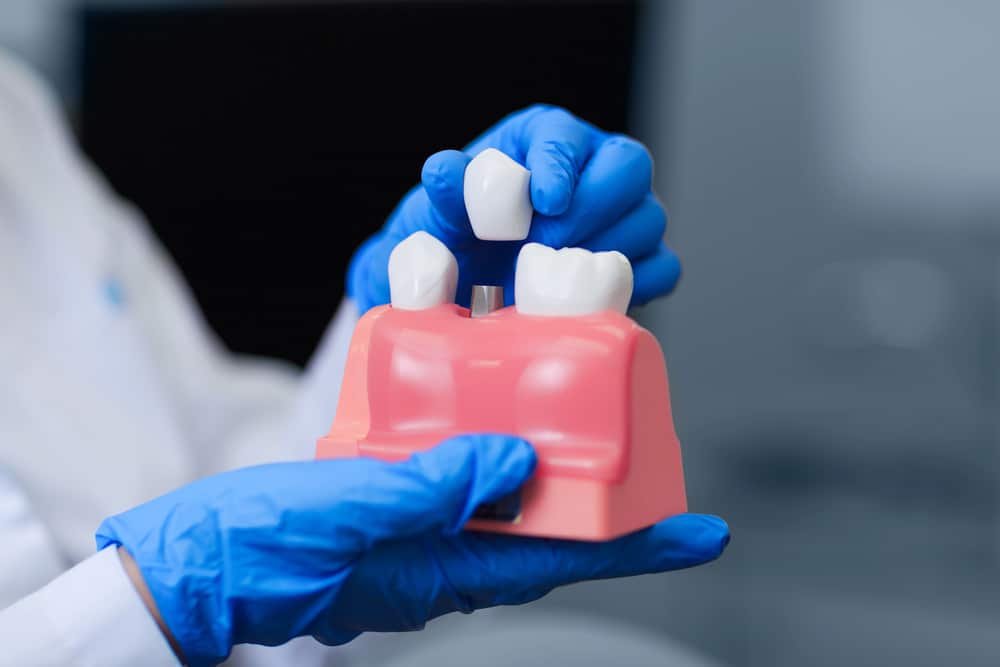Article At A Glance
- Dental implants mimic natural teeth in form and function, providing a secure fit and requiring minimal upkeep.
- While they may have a higher initial cost, their durability makes them a cost-effective option in the long run.
- Habits like smoking can impact the success of an implant procedure, highlighting the importance of maintaining a healthy lifestyle.
- Implants involve surgical risks, but diligent aftercare and a skilled dentist can significantly reduce these issues.
Tooth loss can significantly impact one’s confidence, oral function, and overall well-being. Thankfully, modern dentistry offers effective, permanent solutions to restore one’s smile. Dental implants stand out for their natural look and long-term benefits, but understanding their pros and cons is crucial before deciding.
Benefits of Dental Implants for Long-Term Oral Health
Revitalizes Your Appearance
Dental implants help maintain your natural facial structure by replacing missing tooth roots. Without this support, the jawbone can shrink, leading to sunken cheeks and an aged appearance. Implants preserve density by stimulating the jawbone and restoring a youthful, vibrant look.
Mimics Natural Teeth in Form and Function
Implants closely replicate the appearance and performance of natural teeth, seamlessly blending with the rest of your smile. Unlike dentures, they stay securely anchored, ensuring no slipping during conversations or meals. Patients often describe their implants as feeling so natural that they forget they even have them.
Prevents Bone Loss and Requires Minimal Upkeep
Tooth loss often leads to bone deterioration, but implants prevent this by promoting bone regeneration. They integrate with the jawbone, preserving its strength and supporting oral health. Maintenance is simple, requiring only brushing, flossing, and regular dental visits, making them a hassle-free solution.
Drawbacks and Risks of Dental Implants
Higher Initial Costs
Dental implants typically cost more upfront than other solutions, such as bridges or dentures. The expense varies depending on factors such as the number of implants and the complexity of the procedure. However, their durability often offsets the initial investment, making them more cost-effective.
Lifestyle Habits Can Impact Success
Certain habits, such as smoking, can reduce the likelihood of a successful implant procedure. Smoking impairs blood flow to the gums, slowing healing and increasing the risk of complications. Maintaining a healthy lifestyle and excellent oral hygiene is essential for long-lasting implants.
Involves Surgical Risks
Unlike traditional tooth replacement options, implants require a surgical procedure to anchor a titanium post into the jawbone. While generally safe, the surgery carries some risks, including infection, nerve damage, and sinus complications. Proper aftercare and working with an experienced dentist significantly minimize these risks.
Costs and Longevity: Comparing Permanent Tooth Replacement Options
Dental implants may have a higher initial price tag, but their long lifespan makes them a cost-effective solution in the long run. With proper care, they can last 15 to 25 years or more, significantly outlasting traditional dentures or bridges. Patients often find that implants’ added comfort and stability justify the investment.
Beyond durability, implants offer superior performance and aesthetic benefits compared to other options. Bridges and dentures may require frequent adjustments and replacements, leading to higher cumulative costs. Implants provide a more permanent and worry-free experience, reducing the need for ongoing maintenance.
Dental Implants vs. Dentures and Bridges: Key Considerations
When evaluating tooth replacement options, dental implants offer several advantages over traditional dentures and bridges:
- Stability: Unlike dentures, which can slip or shift while eating or speaking, dental implants are securely anchored to the jawbone, ensuring a firm and stable fit.
- Preservation of Adjacent Teeth: Bridges require support from surrounding teeth, which can weaken them over time. Implants, however, are independent and do not rely on neighboring teeth for support.
- Comfort and Confidence: Implants’ secure fit eliminates the discomfort often associated with dentures, such as gum irritation. Many patients feel more confident eating and speaking with implants.
- Oral Health Benefits: Implants stimulate the jawbone, helping prevent bone loss and preserving the mouth’s overall health and structure.
Why Professional Guidance Is Key to Success
Choosing the right tooth replacement option is a significant decision that requires expert advice. A dental professional can evaluate jawbone health, lifestyle habits, and overall medical condition to determine if implants are suitable. This personalized approach ensures the treatment plan aligns with your goals and needs.
During a consultation, your dentist will outline the entire process, including costs, timelines, and aftercare requirements. If implants are not viable due to specific health concerns, they may also discuss alternatives. Partnering with a trusted dental provider can help ensure a successful and satisfying outcome.
Additional Read: Dental Bridges vs Implants Best Options for Preserving Jaw Health
Psychological Benefits of Dental Implants
Beyond physical restoration, dental implants can greatly enhance mental well-being and self-confidence. A complete, natural-looking smile can improve self-esteem and make social interactions more comfortable. Many patients report feeling more at ease in personal and professional settings after their implant procedure.
Implants also alleviate concerns about gaps or loose dentures, allowing you to focus on enjoying life. Their secure fit means you can eat, speak, and smile without hesitation. These emotional benefits make dental implants a life-changing investment for many patients.
Are Dental Implants the Right Choice for You?
While dental implants offer numerous advantages, they aren’t the ideal solution for everyone. Factors like jawbone density and specific health conditions can limit candidacy. However, advancements such as bone grafting have expanded the range of patients who can benefit from implants.
Consulting with a skilled dental professional can help you weigh the pros and cons of this option. They will guide you through the process and recommend alternatives if necessary. Ultimately, the decision depends on your unique oral health needs and personal goals.
Discover Affordable Dental Implants at Affinity DentalIf you’re considering dental implants,
Affinity Dental is here to help restore your smile and confidence. Our experienced team offers advanced, personalized care to ensure exceptional results tailored to your needs. Call 773-904-7079 or fill out the form on our website to schedule a consultation today, explore your options, and take the first step toward a healthier smile.


